The pros and cons of hosting sporting events
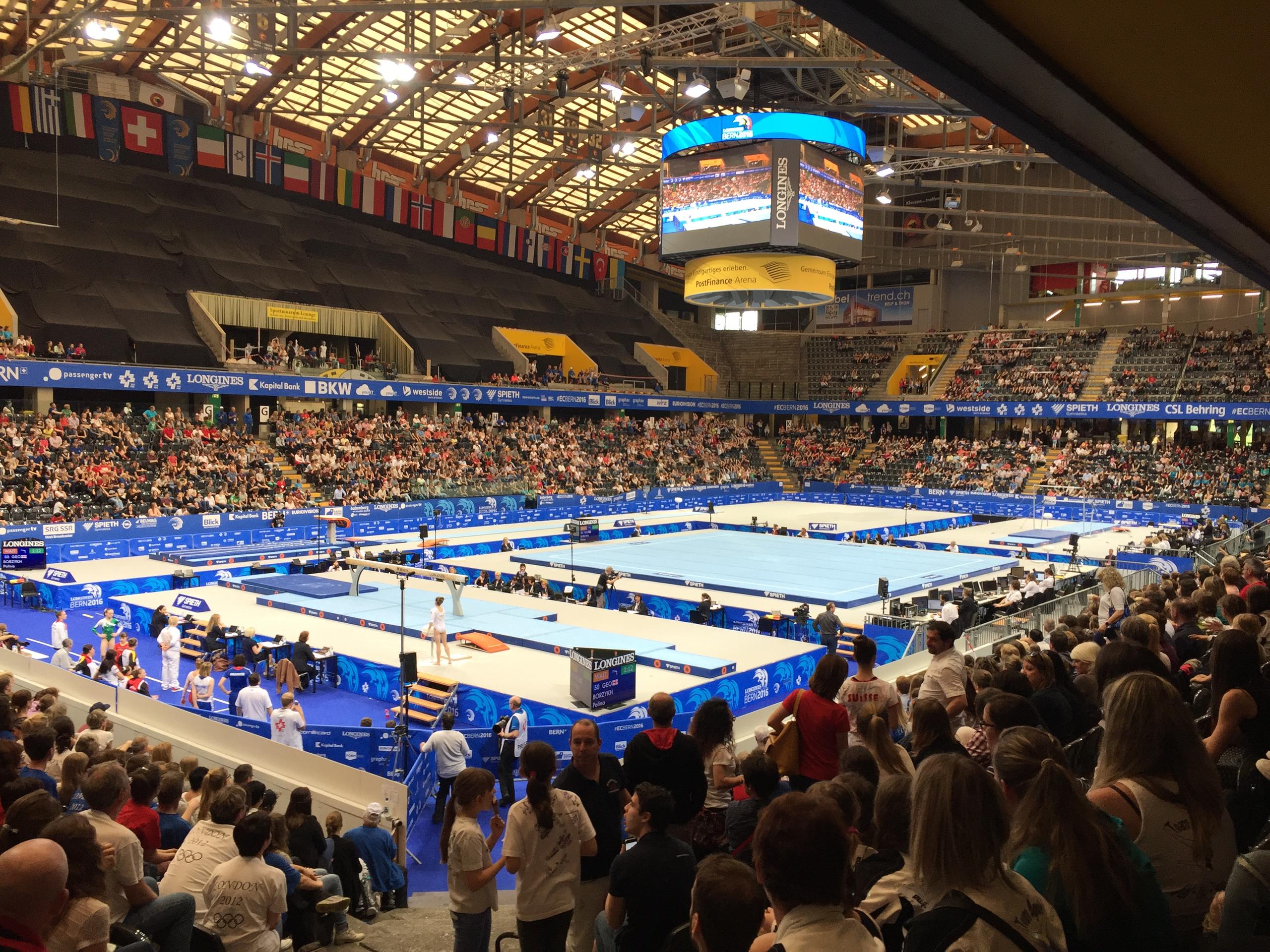
Is it better for a city’s bottom line and image to host a smaller contest like the European Gymnastics Championships instead of a mega event like the Olympics? Here are some factors to consider.
Not much is left of the headquarters of the European Gymnastics Championships, held this past May and June in the Swiss capital, Bern. The organising committee for the EC 2016 spent more than 18 months on the top floor of the House of Sport, a building just outside Bern that houses Swiss Olympic, the umbrella organisation for Swiss sport. And the first seeds of the competition were planted way back in 2012.
At the end of July only two people remained in the office to close up shop. Along with some rented computers and a coffee machine, there were still leftover posters depicting 22-year-old Giulia Steingruber, Switzerland’s top female gymnast, who was chosen to carry the Swiss flag at the opening ceremonies of the 2016 Olympic Games in Rio de Janeiro.
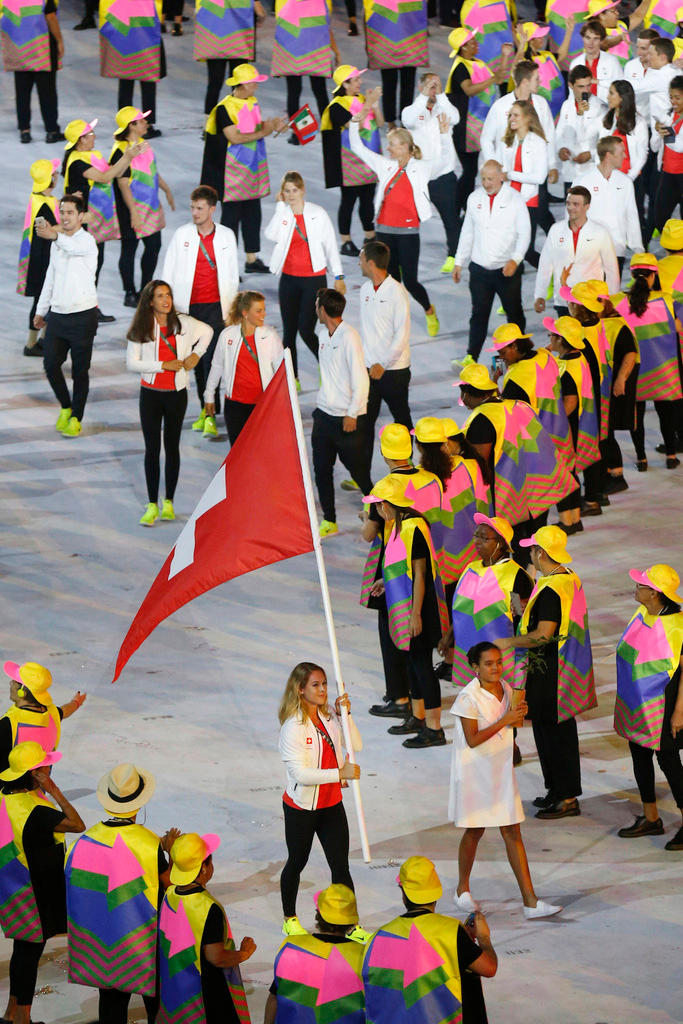
Breaking even
Making a big profit is definitely not a realistic expectation for the Bern championships, according to the event’s general manager, Lisa Worthmann. One of the organising committee’s main goals was to finish the gymnastics competition “without a minus. So at least a big zero has to be there, if not a little bit more”.
There were serious hurdles to overcome to achieve even that modest aim. Finding sponsors was one of the biggest, since, according to Worthmann, many companies already had commitments to higher profile sports including skiing, football and tennis. Swiss firms this year also have had less money to set aside to fund sports competitions, having been hit by a surging franc since January last year.
An additional factor that may break the EC Bern 2016 budget is that the organisers now have to re-sell all of the equipment that was purchased for the competition. Multiple balance beams, parallel bars, still rings, uneven parallel bars, horizontal bars, vaulting tables, side horses, and 40-by-40-foot floor exercise mats are up for grabs at reduced prices. But in a small country like Switzerland, there just aren’t that many takers.
The soft factors
Why then do cities and local sports organisations host sporting events that can’t be expected to turn a profit?
One reason is tourism.
“These events – whether it’s the European Championships in football, gymnastics, ice hockey or whatever – always draw a great deal of attention. And it’s an advantage because it can help sell the region,” says Christian Wasserfallen, who served as head of the gymnastics championships patronage committee and is a member of the Swiss parliament. “People feel very, very comfortable here. That’s something we want to capitalise on.”
Another reason is publicity.
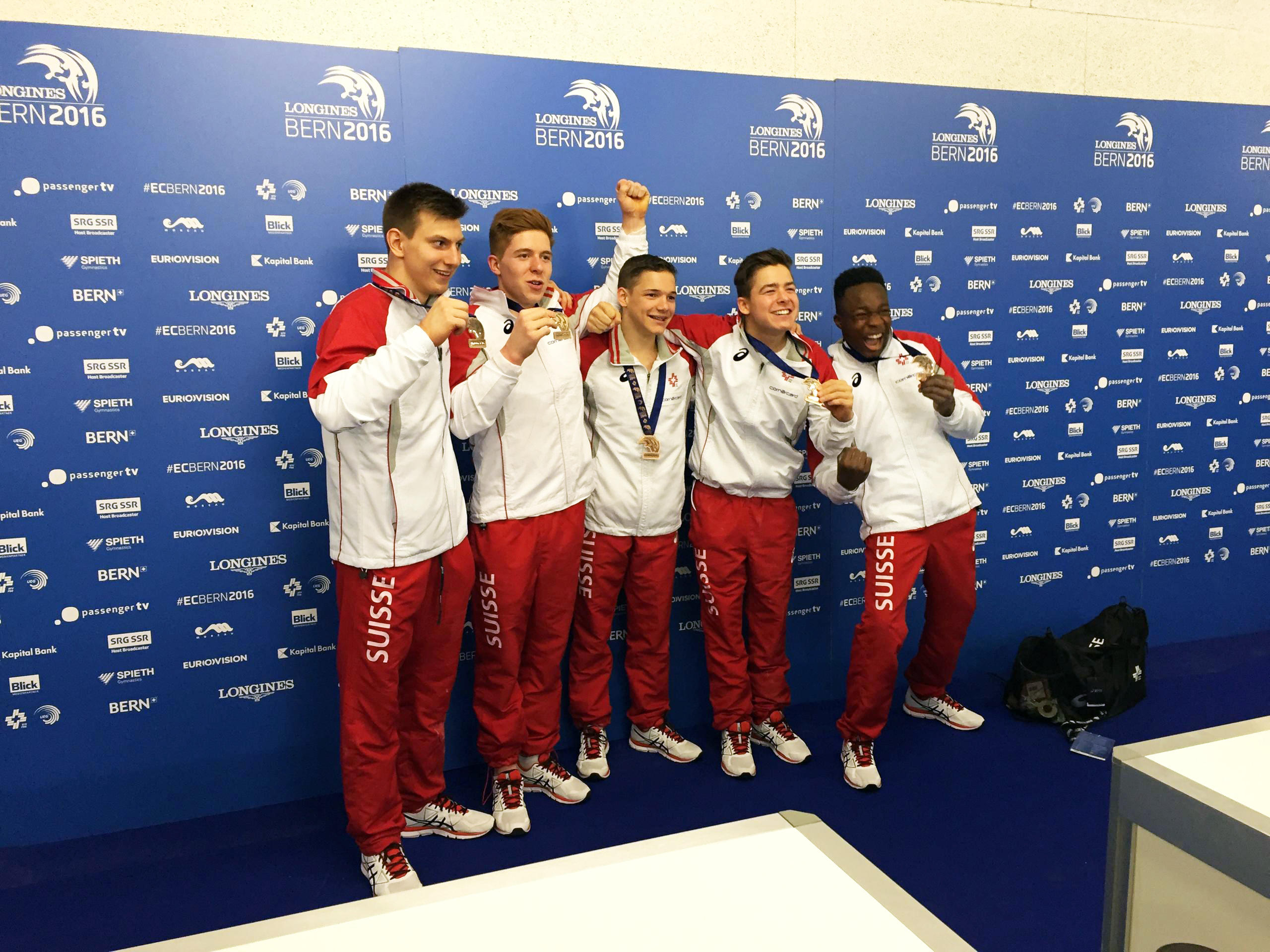
“You hope to reach new members for the federation,” says Worthmann, adding that if all goes well, the athletes are put in a good light. “European championships are widely noticed, I think also in the media, and that helps to promote your sport within your country.”
But publicity isn’t so great when it’s negative. Case in point: Rio. In the month leading up to the 2016 Olympic Games, the city featured in stories about the spread of the Sika virus, nonfunctioning plumbing in the athletes’ quarters, and pollution in Guanabara Bay.
Promoting less popular sports
Successes, on the other hand – when they are achieved on home soil at an event like the European gymnastics championships, where the Swiss men’s elite team won a bronze medal in the team category for the first time in history – are used to justify the money already being spent on the sport, as well as giving sports organisations and politicians a reason to ask for more.
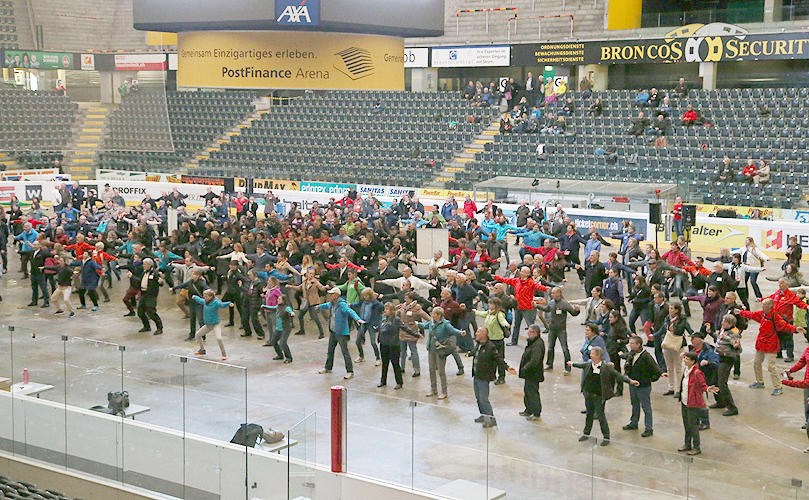
More
Warming up for the European Gymnastics Championships
“Ohne Geld Kein Gold!” (“No money, no gold!”) was the headline of an interview in the tabloid newspaper Blick at the end of July, just before the Rio Olympics began. Roger Schnegg, the director of Swiss Olympic, claimed that other countries – such as The Netherlands, Australia and Canada – are spending much more money on elite gymnastics than Switzerland. Here, CHF5 ($5) per resident goes to elite sports, said Schnegg. “You won’t produce another [tennis star like] Stan Wawrinka with that.” According to Schnegg, Switzerland should be spending at least CHF75 million per year instead of CHF45 million to promote elite sports in the country.
Politician Martin Landolt – who is a candidate for the presidency of Swiss Olympic – agrees that more money is needed. In an interview on Swiss public radio, SRF, the parliamentarian, who is president of the centre-right Conservative Democratic Party, said parliament needs to see the money spent as an investment in the future, not just as an additional cost.
Elite sport is “something that we want, that we can stand behind, that we can invest in. It’s an important part of our society,” he said, adding that it’s very cynical to celebrate Swiss medals won in Rio or other Olympic Games every four years, without providing needed support in between.
In comparison with the Olympic Games, the European Gymnastics Championships in Bern were relatively modest. But they will hopefully translate into support for female gymnasts who hope to become the next Giulia Steingruber.
In the case of gymnastics, it’s indeed a long-term investment: today’s gymnasts can take up the sport at the tender age of 3.
2016 European Gymnastics ChampionshipsExternal link
More than 31,000 spectators turned out to see more than 600 male and female athletes from 38 countries who took part in the Junior and Elite men’s and women’s artistic gymnastics competitions held in Bern between May 25 and June 5, 2016. The budget for the event was CHF6.5 million.
Elite gymnast Giulia Steingruber was crowned European champion on the vault and floor exercise and Junior gymnast Lynn Genhart took silver in the all-around. The Elite and Junior men’s teams won the bronze medal in their respective team finals; it was the first time in history that the Swiss elite men won a team medal at the European Championships. Moreno Kratter won silver on horizontal bar in the Junior men’s competition, and Christian Baumann won bronze on the pommel horse for the Elites. Click here External linkfor complete meet results.
2016 European Championships in Beach VolleyballExternal link
At the same time the female gymnasts were competing in Bern, another European Championship was taking place on the nearby shores of Lake Biel. A 3,200-seat stadium was built and 1,400 tons of sand were imported for the European Volleyball championships, which featured 32 women’s teams and 32 men’s teams with a total of 128 players.
The event, which took place between June 1 and June 5, had a budget of CHF3 million ($3.1 million) and prize money to the tune of €100,000 ($113,000). It was the last qualifying competition before the 2016 Olympic Games in Rio.
“The number of sporting and cultural events being offered in Switzerland is enormous all year round, but particularly in summer,” tournament director Sascha Heyer told swissinfo.ch. Beach volleyball matches are considered “entertaining, sexy, and ‘the place to be’,” he said, and that helped draw premium advertising partners. But “in terms of spectators and advertisers, there’s a battle for survival. We feel that.”
2014 European Athletic Championships
The Athletic championships, held in Zurich August 12-17, 2014, featured 1,439 athletes from 50 nations and drew almost 150,000 spectators. The event generated more than 60,000 hotel nights and turnover of around CHF146 million Swisswide. The overall budget was reported at between CHF33 million and CHF37 million, but the event ended up with a deficit of CHF3.16 million due to lower-than-budgeted ticket sales.
Winter Olympic bids
In 2013, 54% of voters in the Swiss canton Graubunden said “no” to a proposal to set aside a financial reserve of CHF300 million for the organisation of the 2022 Winter Games in Davos and St Moritz. Among the reasons for the rejection were the projected operational costs (an estimated CHF2.46 billion) and concern over the negative effect on the environment.
That doesn’t mean there wasn’t interest. In May 2016, Swiss Olympic received no fewer than five proposals for 2026 Winter Olympic bidsExternal link.
In the view of Jorg Schild, Swiss Olympic’s current President, “The winter sport industry and the activities that rely on it strongly need to be revitalised in Switzerland. There is no better means than hosting the Olympic and Paralympic Games to start this revitalisation process. In Swiss Olympic, we are ready to play our role and contribute to the improvement of our future through sport.”
Gymnasts now start training as toddlers. Is a European or Olympic medal worth the investment?
You can contact the author via Twitter @JeannieWurz

In compliance with the JTI standards
More: SWI swissinfo.ch certified by the Journalism Trust Initiative









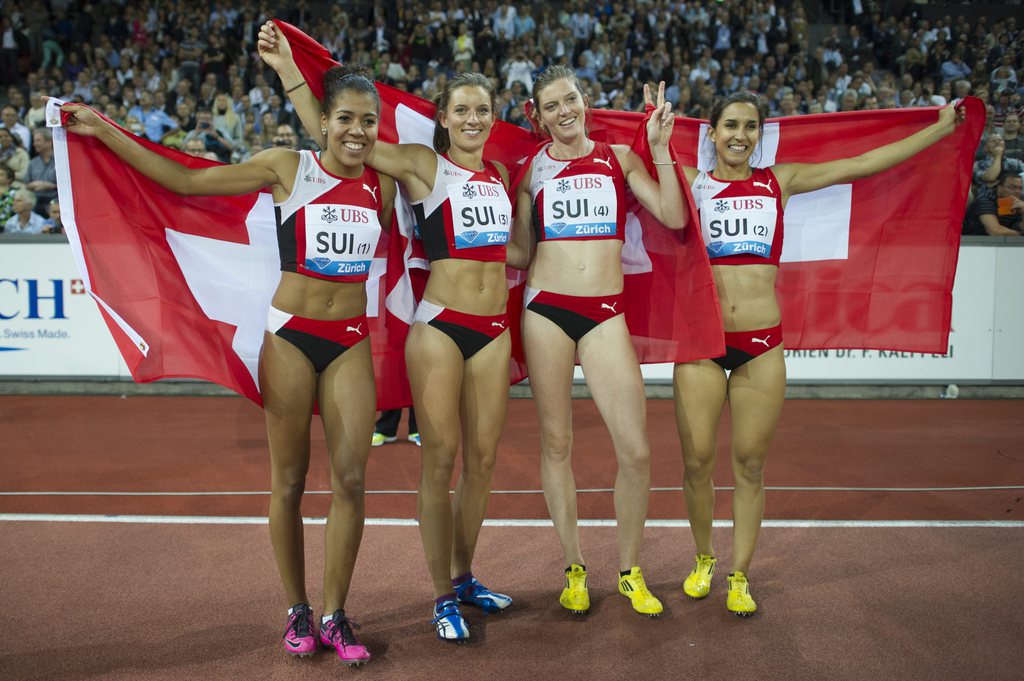
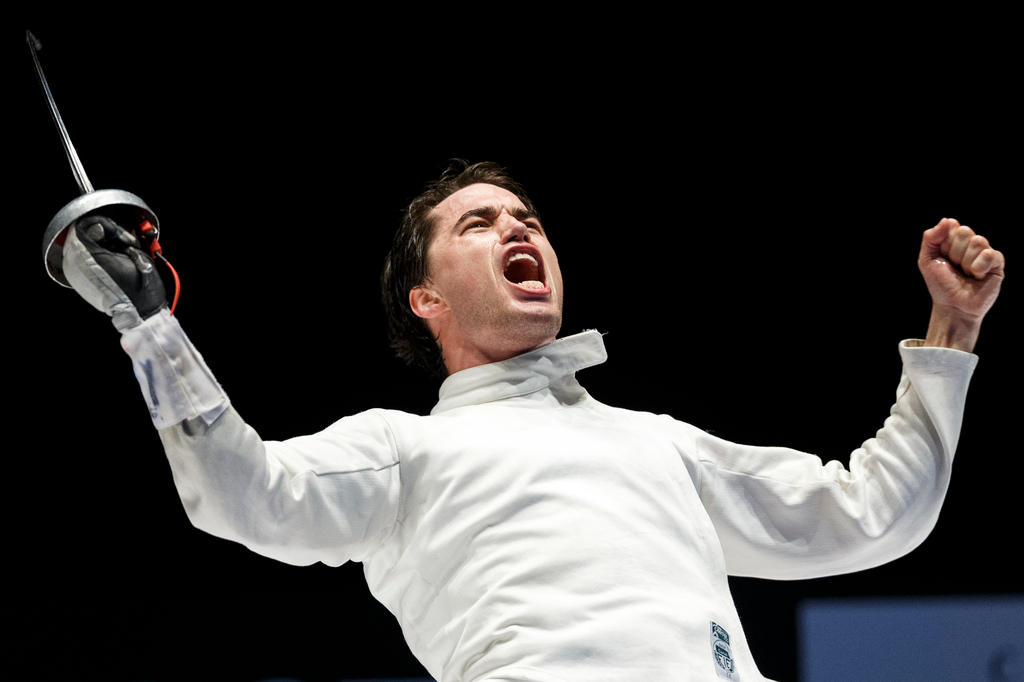

You can find an overview of ongoing debates with our journalists here . Please join us!
If you want to start a conversation about a topic raised in this article or want to report factual errors, email us at english@swissinfo.ch.